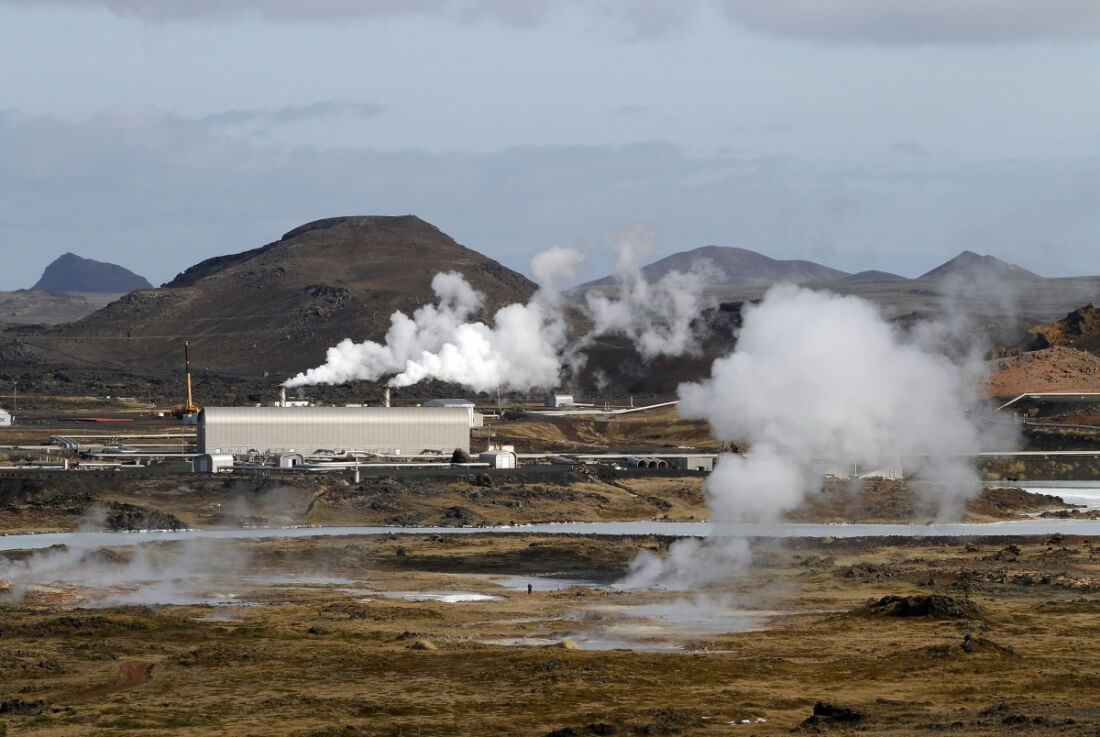
Iceland is currently the only country in the world running on 100% renewable energy, but apparently that isn't good enough for them. They have just drilled roughly 3 miles (5km) into the heart of a volcano to access the immense heat trapped inside. The geothermal power plant, located at Reykjanes, is named after Thor, the Norse god of thunder and lightning. Most of Iceland's current electricity comes from hydroelectric dams with geothermal currently accounting for just 25%.
Drilling nearly 5km into the earth is no small feet. This record-breaking project started in August of last year and took 6 months of continuous drilling to reach its target. The temperatures and pressures this deep are extreme. Water transitions into a supercritical state where it is no longer gas nor liquid. Using this superheated water, they can expect to get "5 to 10 times more power from the well than a conventional [oil or gas] well today."
The Reykjanes region where the Thor volcano well is situated was previously used by NASA to train astronauts on what the moon would look like. The volcano erupted about 700 years ago leaving it cratered and desolate, just like the lunar surface.
Drilling down to extract heat from under the earth's surface is far better for the environment than fossil fuels like coal or oil, but it's not perfect. With current technology, geothermal energy isn't fully renewable or clean. There are still issues about increased sulfur and CO2 emissions that come with bringing buried gas to the surface. That being said, recycling methods to trap or send the gas back into the earth are advancing rapidly.
Harnessing the power of a volcano was once only a figment in science fiction writers' imaginations. If this project is successful, it could open the door to a lucrative new source of relatively clean and renewable energy.
https://www.techspot.com/news/69210-iceland-drilling-volcano-generate-geothermal-energy.html